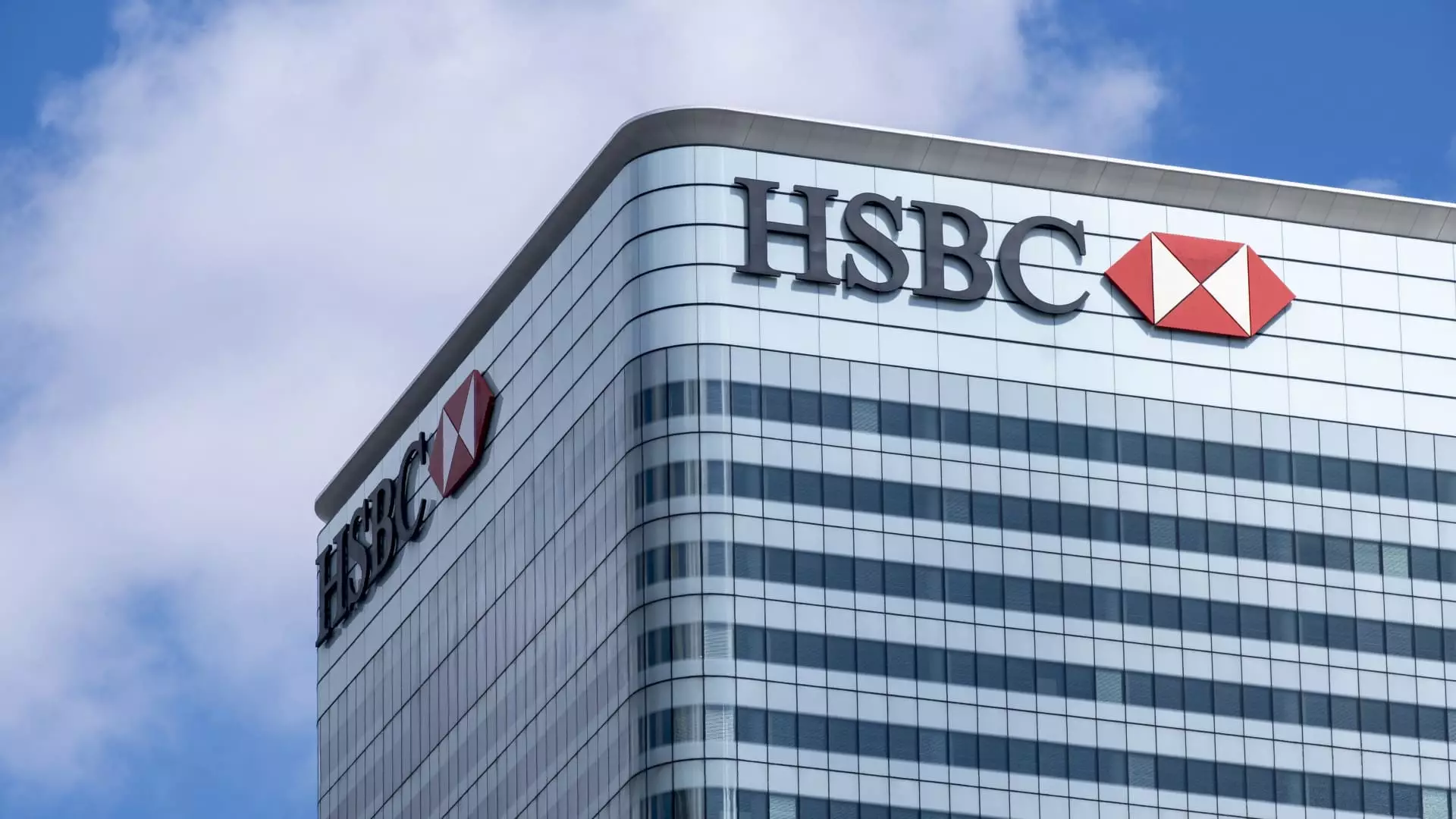HSBC Holdings, Europe’s largest bank, recently revealed a commendable performance in its third-quarter earnings report, showcasing its ability to thrive in a challenging financial landscape. The bank reported a pre-tax profit of $8.5 billion, comfortably exceeding market expectations of $8 billion, and representing a 10% increase from the previous year’s figure of $7.71 billion. This growth can largely be attributed to robust revenue streams, specifically from its wealth management and personal banking sectors, indicating a diversified approach to income generation.
In addition, HSBC’s total revenue rose to $17 billion, exceeding both last year’s $16.2 billion and analyst forecasts, further underlining the bank’s resilience. The profit after tax also saw a notable improvement, landing at $6.7 billion, which is $500 million higher than the third quarter of the previous year. Such figures not only demonstrate the bank’s operational efficiency but also underscore its strategic efforts in strengthening its core business areas.
In a notable move to enhance shareholder value, HSBC announced a share repurchase plan of up to $3 billion, marking the continuation of its commitment to returning capital to investors. This brings the total share buyback for the year to a staggering $9 billion, highlighting a consistent strategy in rewarding shareholders. The company’s board also declared a third interim dividend of $0.1 per share, signaling confidence in HSBC’s ongoing profitability and financial health.
These actions resonate well with investors, demonstrating the bank’s intent not only to bolster its stock prices but also to instill confidence in its long-term growth trajectory.
Despite the positive earnings report, HSBC did face some challenges, particularly in its net interest margin, which decreased to 1.46%—a drop of 24 basis points from 1.70% a year ago. This decline suggests that while the bank is experiencing increased profits and revenues, the cost of lending may be impacting overall profitability. Such variability highlights the importance of adaptiveness in financial strategies, which HSBC has recognized.
In response to evolving market needs, HSBC is transitioning to a new operational framework consisting of four distinct business units: Hong Kong, the U.K., International Wealth and Premier Banking, and Corporate and Institutional Banking. This restructuring, anticipated to take effect in January, represents HSBC’s proactive stance on streamlining processes and enhancing decision-making efficacy, particularly under the leadership of the bank’s first female Chief Financial Officer.
Overall, HSBC’s recent performance and strategic decisions reveal a bank that is not only achieving short-term success but also laying the groundwork for sustained growth. While challenges such as declining interest margins persist, the bank’s decisive restructuring and commitment to shareholder returns reflect a forward-thinking approach in an ever-evolving financial environment. Stakeholders can anticipate positive developments as HSBC continues to navigate the complexities of the global banking landscape, ensuring its position as a leading financial institution.

